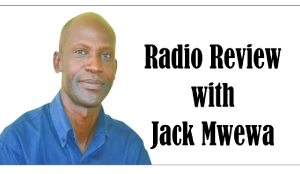 A LOCAL outspoken artiste made interesting allegations when he featured on one radio station that some artistes bribe radio Deejays for them (DJs) to play their (artistes) music on air.
A LOCAL outspoken artiste made interesting allegations when he featured on one radio station that some artistes bribe radio Deejays for them (DJs) to play their (artistes) music on air.
In his words, some artistes whose music does not make sense and cannot deserve air play enjoy air play at the expense of quality music.
His allegations, if true, explain why most cacophony has filled the airwaves. The revelations are of serious concern because mediocrity has continued to override quality.
With such revelations, one wonders how corruption has permeated even industries we thought could not be affected.
If we thought corruption was only rife among police traffic officers and other public offices, it is sad that the radio industry has not been spared.
Under normal circumstances, only songs that appeal to listeners, in lyrics, beat and clarity could qualify to be played on radio. In fact, there was a time when newly-released songs were subjected to scrutiny before they played on radio.
Able men and women with musical background sampled some new songs, giving them merits and demerits as to whether listeners would like them, but such critique does not happen now.
To say any song can go on air may be misleading. The truth is any song which could have been paid for (or bribed its way) whether sensible or not would be heard on radio.
In the wake of the aforesaid, listeners should from now on know that not all songs they hear played regularly on radio are worth airplay.
It could justifiably be said that just as we have a lot of dangerous drivers with ‘bought’ licences endangering road users, some unprincipled Deejays are ‘endangering’ listeners.
We are the world
On April 5, 1985, which was a Friday, 8,000 radio stations across the world played one song at the same hour; We are the world recorded by the supergroup USA for Africa.
It was written by Michael Jackson and Lionel Richie, and produced by Quincy Jones and Michael Omartian.
Others were Jackson’s brothers and sisters, Stevie Wonder, Paul Simon, Kenny Rogers, James Ingram, Diana Ross, Al Jarreau, Bruce Sprinsteen, Steve Perry, Cyndi Lauper, Bob Dylan, Harry Belafonte, Bob Geldof, Smokey Robinson, Quincy Jones and the Pointer Sisters.
It is said that more than 20 million copies of that song were sold the world over and an equivalent of US$136 million at today’s rate was raised for starving Africans, especially in Ethiopia.
The song has been sung by several other singers at various functions, therefore, making it one of the most played song on radio. It was and still remains a good piece of work.
In this write up, we make reference to that song today, being a few days shy of 31 years since it played on those 8,000 radio stations at the same time, and further that every Radio Deejay did not need to be bribed for him/her to play it on air.
Radio 4
Today in history, a programme on Zambia National Broadcasting Corporation (ZNBC) Radio 4 every Monday morning takes down memory lane recounting events that happened in the past.
One feels that may be the programme presenters could do better recounting more of local events than foreign ones.
***
Linzy is another female radio DJ worthy listening to on ZNBC’s Radio 4 every Thursday at 09:00 hours. She is one of the best female Deejays, fast-talking with a clear voice.
***
Zam Intersport, a sports review and preview presentation on Radio 4 presented by Patrick Nyangulu plays a different sig tune from other sports programmes on most radio stations.
Those who have tuned in to sports presentations on various radio stations have been treated to the same sig tunes, Zam Intersport, therefore, is only one of its kind.
***
Feel Every Moment, a DStv presentation on Radio 4 highlights a programme being offered by MultiChoice. It is presented by Hebert Mutabi and Matimba Nkonje.
The duo is an exciting combination every radio listener would be interested to hear as they flow well.
***
Masautso Nkhoma, known as Ruff Kaida, one of the controversial Zambian artiste was live on Radio 4 in an interview.
For a moment, one would wonder if he is the same person who has raised eyebrows in the past.
Known for controversies like when he appeared in a coffin during the launch of his Naked Truth album at Club Z in Lusaka and a semi-nude picture, he was this time soft-spoken with an excellent command of English.
SUN FM
It was Curtis Kay Slimar who connected Chasaya Sichilima, another Zambian artiste living in Canada for a live phone-in interview last Friday.
Apart from listening to their music, hearing an artiste in speech and not singing is yet other interesting phenomenon listeners would enjoy.
Some music fans have listened to recorded interviews of old-time musicians like Bob Marley, Michael Jackson and others just for the fun of it.
Stay tuned, don’t touch that dial! – jackmwewa@gmail.com 0955115777






